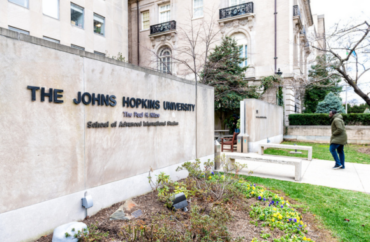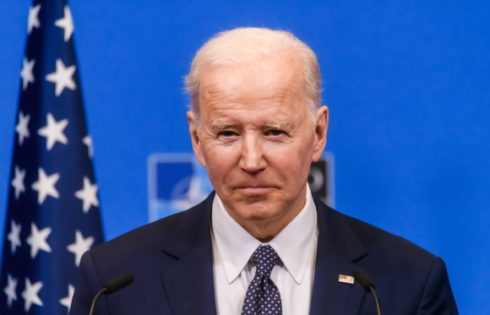
Higher ed reform group suggests future steps to promote open debate at Johns Hopkins University following institutional neutrality announcement
Johns Hopkins University recently became one of the latest campuses to embrace institutional neutrality. However, there is more work ahead to implement this, according to a higher education reform group.
“We—as university leaders and deans—have arrived at a strong commitment to make institutional statements only in the limited circumstances where an issue is clearly related to a direct, concrete, and demonstrable interest or function of the university,” the JHU president, provost, and deans wrote in a statement.
The leaders of the private Maryland university pledged a “posture of restraint” in their announcement.
The statement, signed by university deans, President Ron Daniels, and Provost Ray Jayawardhana, said the university “must recognize that taking institutional positions can interfere with the university’s central commitment to free inquiry and obligation to foster a diversity of perspectives within our academic community.”
The leaders also wrote that university pronouncements can “unintentionally model for our students that the only, or best, avenue for engaging with issues is to make public statements, obscuring that there are more effective ways to make change in the world.”
Dean Christopher Celenza and Dean Christopher Morphew did not respond to multiple requests for comment via email and phone on the implementation of the policy in the past month.
Provost Jayawardhana also did not respond to multiple emailed requests for comment.
The College Fix specifically asked if the school would refrain from commenting on issues like LGBT Pride Month, as it has done in the past.
Syracuse University posted in support of Pride Month just days after pledging institutional neutrality, as previously reported by The Fix. The Center for Diversity and Inclusion also did not respond to requests for comment.
Other schools, including the University of Pennsylvania, Stanford University, and Washington State University, have implemented institutional neutrality in recent weeks.
MORE: Institutional neutrality will probably fail at Harvard
The American Council of Trustees and Alumni said the university is on the right path but needs to do more work to implement the promise.
The university is “still considering whether its policy of restraint should apply to departments and centers, etc,” Campus Freedom Fellow Steve McGuire told The Fix via a media statement.
“It is ACTA’s position that policies of institutional neutrality should apply to those sorts of units within an institution, so we hope JHU will extend its policy to apply to them,” McGuire said.
McGuire said “it is acceptable under a policy of institutional neutrality for a university to recognize that members of its community are celebrating a special occasion or for departments to share events and activities that have been organized by individual members or groups within the university.” The Fix had asked if Johns Hopkins should refrain from posting about Pride Month in the future.
He said leaders will “likely be pressured” to speak in the future on “social and political events” and “it will take time for people to become accustomed to a new policy of restraint.”
That is why “cultural change” must happen, McGuire said.
“An important next step would be to reform hiring and admissions processes so that they focus on academic promise without regard for political considerations,” he said.
“This will allow for more viewpoint diversity to flourish on campus and reinforce the need for campus leaders to refrain from taking sides whenever possible.”
MORE: Institutional neutrality implemented at Purdue, USC
IMAGE: Andriy Blokhin/Shutterstock
Like The College Fix on Facebook / Follow us on Twitter






Please join the conversation about our stories on Facebook, Twitter, Instagram, Reddit, MeWe, Rumble, Gab, Minds and Gettr.